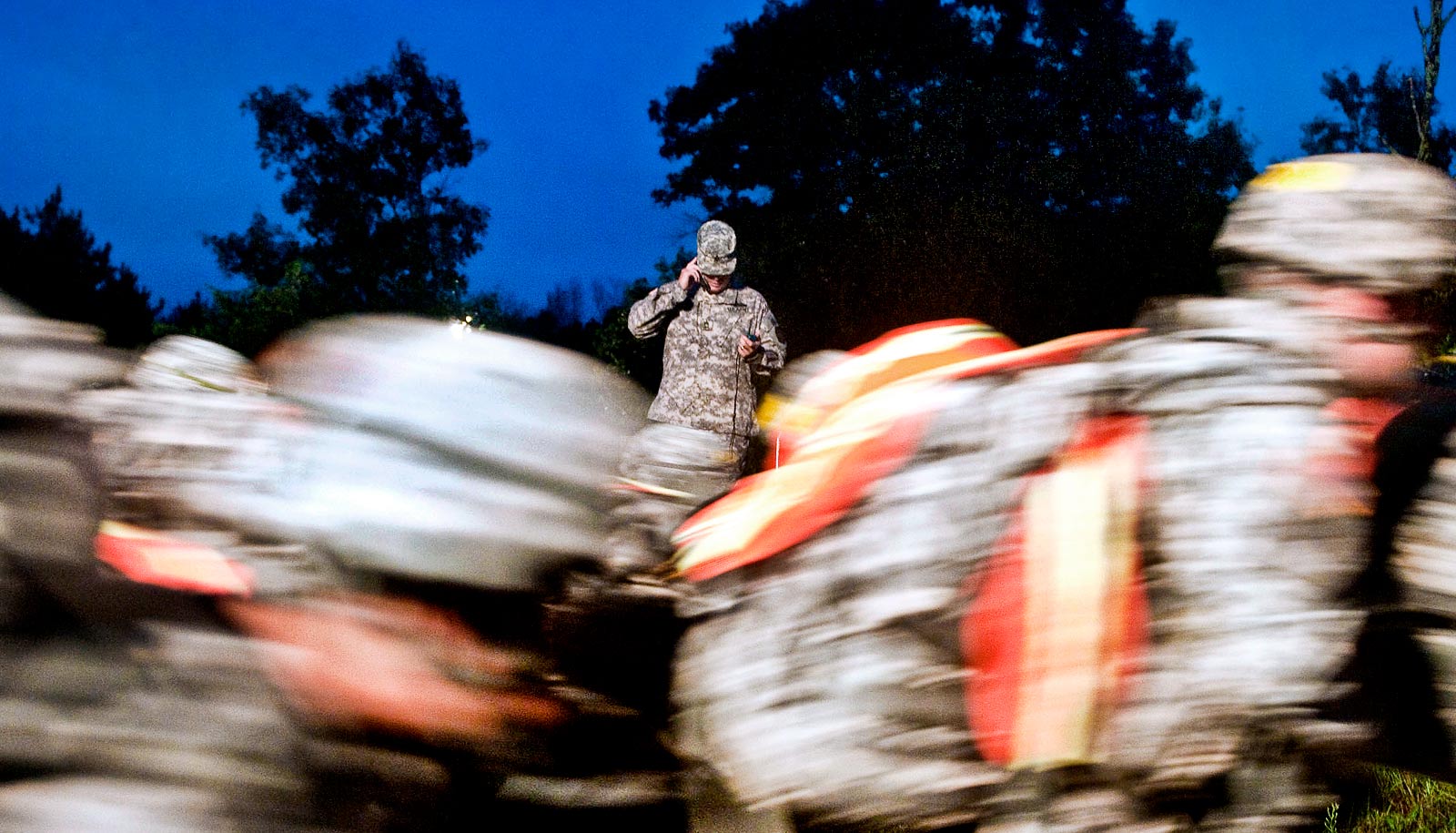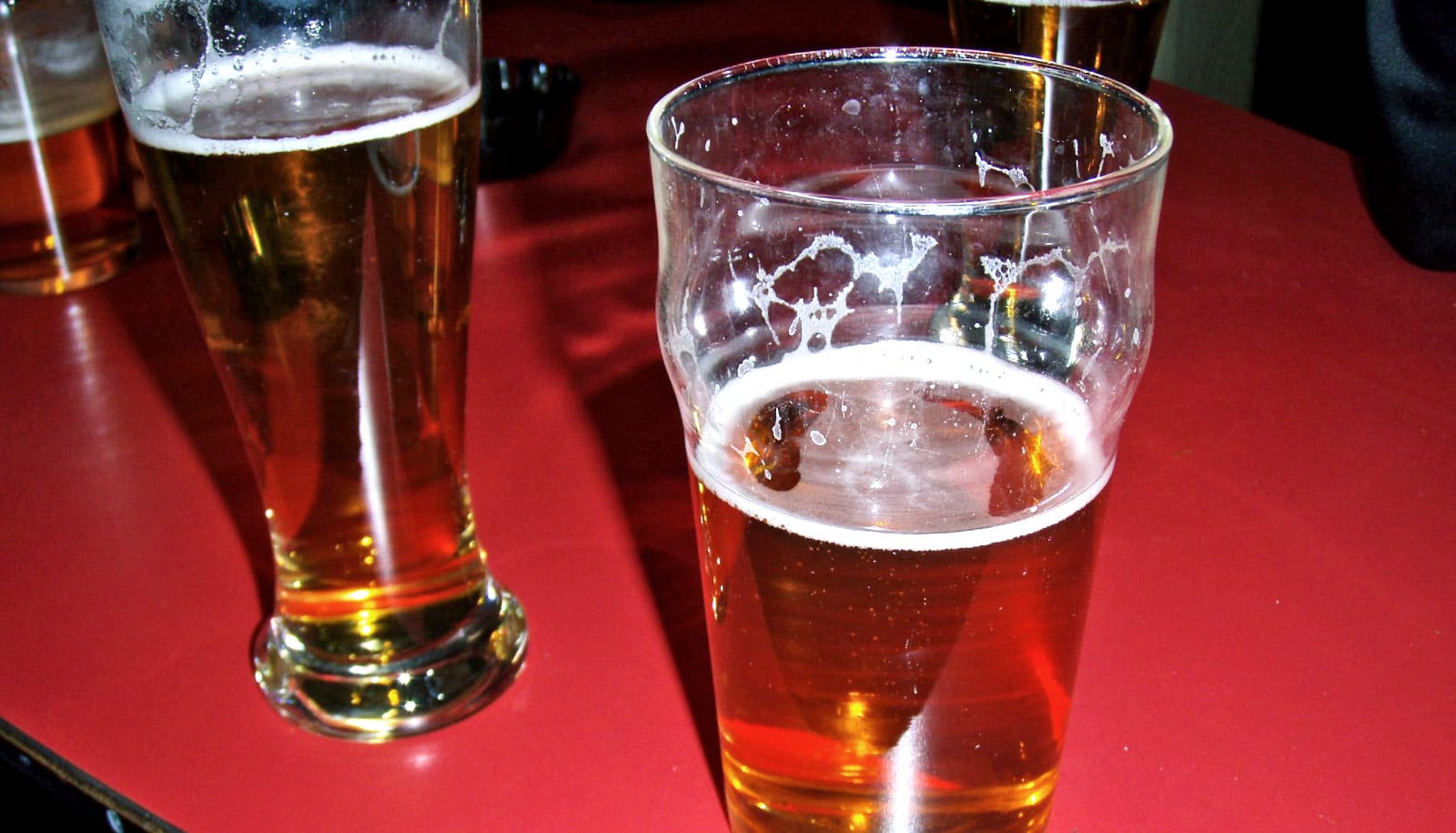US Army Reserve and National Guard soldiers who feel more guilt or other negative emotions about never having been deployed are more likely to misuse alcohol, a new study shows.
“A greater degree of non-deployment emotions—such as guilt, less value, less camaraderie, and less connectedness—was associated with greater frequency and amount of alcohol drinking among never-deployed Army Reserve and National Guard soldiers,” says lead author Rachel Hoopsick, a community health and health behavior PhD candidate in the School of Public Health and Health Professions at the University at Buffalo.
“Male, but not female soldiers, experienced a greater likelihood of alcohol problems when they had highly negative non-deployment emotions,” Hoopsick says.
Reserve service members, who number just over 1 million in the US, have been shown to be at high risk for problems with substance use and mental health. But less is known about the drinking patterns of soldiers who have never been deployed, Hoopsick says.
While previous research hasn’t uncovered any significant differences between recently deployed and never-deployed soldiers in terms of alcohol use, never-deployed service members may be less likely to be considered for targeted screening and intervention efforts as those who have been deployed.
“US Army Reserve and National Guard soldiers are at high risk for alcohol misuse, and our prior work demonstrated that negative emotions…are prevalent among those who have never been deployed,” Hoopsick says.
“Non-deployment emotions are associated with alcohol problems among men and are thus important to consider in the overall health and well-being of never-deployed service members,” she says, adding that they should be included in alcohol screening and prevention efforts.
Researchers say non-deployment may affect men more so than women because of what has previously been called the “reserve soldier identity,” of which deployment is a key component.
In the current study, which appears in Alcoholism: Clinical and Experimental Research, 77 percent of male soldiers and 70 percent of female soldiers experienced some type of negative emotions over their non-deployment.
Among never-deployed soldiers, 23 percent of men and 21 percent of women reported getting drunk at least once per month, while 12 percent of men and 8 percent of women had clinically significant alcohol problems.
“The importance of considering all soldiers and not just those who have deployed is essential for the prevention and intervention of problematic substance use and other issues,” says coauthor Gregory G. Homish, associate professor and associate chair of the community health and health behavior department.
Data for the paper came from Operation: SAFETY (Soldiers and Families Excelling Through the Years), an ongoing study of the health and well-being of US Army Reserve and National Guard soldiers and their partners.
The National Institute on Drug Abuse and the National Center for Advancing Translational Sciences of the National Institutes of Health funded the work.
Source: University at Buffalo



